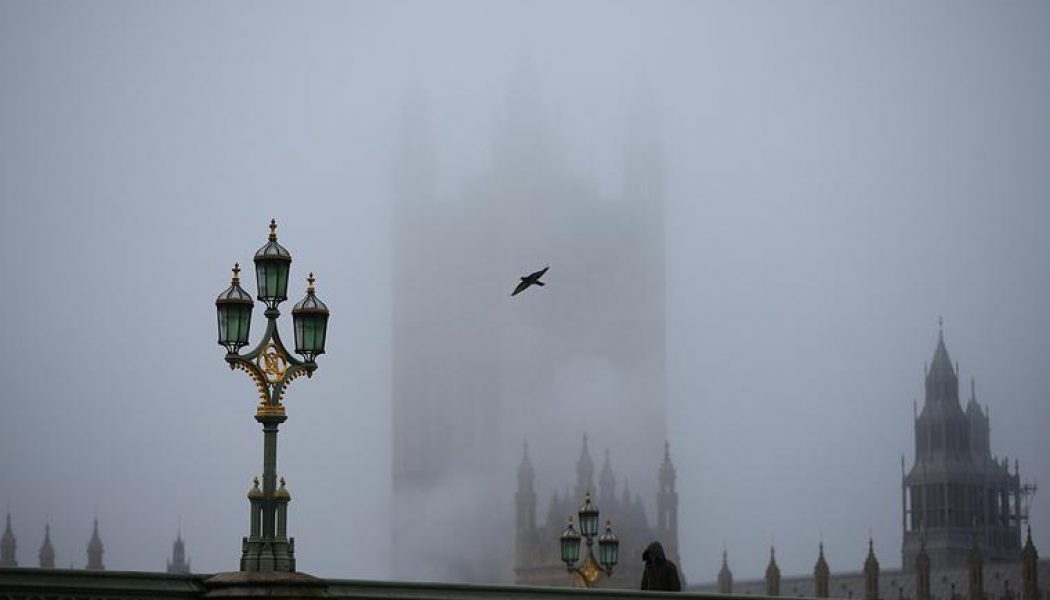
Blessed are the meek, for they shall inherit the city.
London’s streets are empty of life, its byways strangely deserted.
This city’s once great and endless panoply of amusement outlets and retail opportunities are closed, West End theatres and cinemas, clubs and pubs, bars and restaurants silent. Churches no less empty or strange, with their endless “do not cross” yellow tape everywhere. The whole metropolis has the air of a closed out-of-town retail park on a wet Sunday afternoon. And, increasingly, this once great city appears to have the same lack of charm.
In 2019, in the days before COVID-19, official figures tell of a different city. Approximately 22 million international tourists came to London. In addition, from across the South East of England and beyond, more than half a million commuters arrived at London train stations each morning. The daytime population alone of the City of London, the main financial centre, leaped daily in those days from under 10,000 residents to over 300,000 with the commuters who came to work there.
All that has changed. The onset of COVID-19 last March turned a thriving world city into a “hamlet” — with a seeming population to match its new status. As commuters and tourists abandon London it has become all too apparent how much the city needed and lived off its transient visitors. And, regardless of vaccine effectiveness, this does not look like a temporary phenomenon.
By 2019 rail journeys were at their highest level since the 1920s. Nationally, the share of train commuters was up to 2.9 million passengers. Rail passenger numbers in Great Britain stood at 439 million. With most of their journeys taking place in and around London, which in addition had an extensive underground system handling daily around 5 million passengers journeys over its 11 lines and 270 stations.
In contrast, by 2020 rail passenger journeys in Great Britain had fallen to 35 million — the lowest level of passenger usage since the mid-19th century. Total passenger journeys on the London Underground for the whole of August 2020 stood at just 28 million.
Stay-at-home commuters, whether they once came to London from outside the city or traveled to work from within its boundaries, have discovered a new way of working and living that does not involve commuting for hours on overcrowded and often late-running trains.
This is a welcome change in lifestyle for many that looks unlikely to be reversed, especially given the reaction of the corporations that employed these former commuters. The realization has dawned on the former that employee productivity has not dropped; in fact, in some cases it has increased when working from home. Alongside this, there has also been another realization that the sky-high rents for a modest portion of City of London real estate can be relinquished, saving employers millions of pounds.
So it seemed it was a “win/win” for all concerned. Staff liked working at home; and, crucially, their employers saved money by allowing them to do so. That, in a nutshell, spells the end of the commuting office-based culture of the City, a culture that has dominated the life — and generated much prosperity — of London, and to some extent the United Kingdom, for the last several centuries.
Tourism is a different matter. In due course tourists may return to London. However, it is the timing of any future return and resultant recovery to the hospitality sector that matters. Too long a delay in this will end the viability for attractions to remain open; any prolonged period of inactivity will also close much of the city’s tourist accommodation. This contraction in the tourist industry will have an effect on those employed in that industry. Many in London working in that are foreign and Catholic. Their willingness to stay in London unemployed is questionable. Many will chose to leave.
But it is not just those involved in the hospitality sector currently weighing up their options. The fact is that the advent of working from home as a viable and respectable option means that almost anyone can work from anywhere. Places to live and work such as London and the South East of England are overcrowded and expensive. So why not relocate to a small country town, or the countryside proper, or a remote Scottish island — or France, Italy, Spain, or just about anywhere with a good internet connection?
Catholic social teaching is based upon the principle of subsidiarity. That is an organizing principle that matters – be they economic, political or social — ought to be dealt with by the smallest, lowest or least centralized competent authority. Whether we like it or not, in Britain today, we are being asked to live lives that are more local — and therefore, more simple — than how we existed previously.
COVID-19 has changed the world and is changing it still. And cities built upon social philosophies that differ from Catholic social teaching, such as London, look increasingly vulnerable to the changes being wrought.
In recent years two subjects obsessed London city planners, and both were predicated upon exuberant property prices — how to house London’s growing population and how to move that growing populace around the city via public transport. Now both debates appear redundant. Instead, the COVID-19 health crisis has posed an existential question for Londoners: Why stay?
Unexpectedly, over the coming years, it is possible that London’s population will plummet. As a knock-on effect, former office space could be transformed into living space for those who choose to remain. Just think: the City of London, with some of the most expensive real estate in the world, may well end up housing London’s homeless.
In which case, it will indeed be a case of the meek inheriting the earth.
Join Our Telegram Group : Salvation & Prosperity







